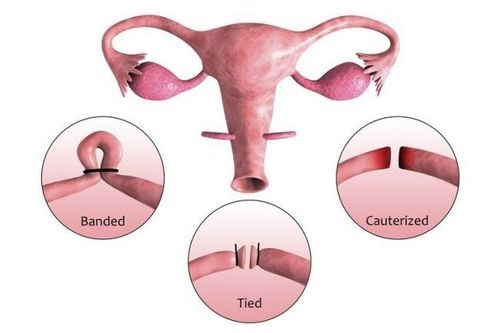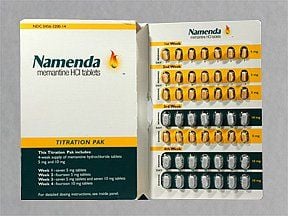This is an automatically translated article.
Current contraceptive methods are very diverse and abundant such as condoms, emergency contraceptive pills, monthly birth control pills, spermicides... A special but less common form of contraception, which is A three-month birth control pill called Amethia. So what is Amethia?
1. What disease does Amethia treat?
What is Amethia medicine? This is a group of combined hormonal birth control pills. Amethia consists of two hormones: progestin (as levonorgestrel) and estrogen (as ethinyl estradiol).
Amethia works to stop the ovulation process of the menstrual cycle. In addition, the Amethia birth control pill has other effects such as creating a thicker vaginal fluid to prevent sperm from meeting an egg for fertilization and changing the lining of the uterus so that the zygote cannot attach.
In addition to the contraceptive effect, Amethia medicine is also very interested in treating any disease. In fact, the drug treats the following problems:
Regulates menstruation: makes the cycle more regular, reduces blood loss and menstrual cramps; Reduce the risk of ovarian cysts; Treatment of acne . Using the birth control pill Amethia does not prevent sexually transmitted diseases (such as HIV, gonorrhea, chlamydia).

Thuốc Amethia có tác dụng điều trị mụn trứng cá
2. How to use the contraceptive Amethia
Read the Instructions for Use before using Amethia birth control pills. These instructions are very important about when to take your medicine and what to do if you miss a dose.
Amethia oral contraceptives should be taken orally under the direction of a doctor, once a day. Patients should choose a memorable time to take their medication and maintain it at the same time each day.
Users who want to avoid pregnancy need to take Amethia exactly as prescribed by their doctor. Follow the instructions to take the first pill and take the rest in the order of the pack. Do not skip any pills. You can get pregnant if you miss a pill, then you should start a new pack or use it at a different time of day.
If the user feels abdominal pain or nausea due to Amethia, take the medicine after dinner or before going to bed. Regardless of when the medication is taken, it is very important to take it at the same time every day, 24 hours apart.
Start taking the Amethia birth control pill on the first Sunday after the start of your menstrual cycle. If your period starts on a Sunday, start taking Amethia that day.
Amethia pack contains 84 estrogen/progestin combination pills and 7 estrogen only pills. Users need to take a combination pill every day and take it for 84 days in a row. On the first day after the combination pill ends, users should start taking one estrogen-only pill per day for 7 days in a row. Menstrual cycles should return within the week of using estrogen-only pills.
In people using Amethia for the first time, it is best to use a non-hormonal method of birth control (such as a condom or spermicide) for the first 7 days for the pill to take effect. If you take the pill on the first day of your period, you don't need to use backup contraception for the first week.
Consult your doctor if you want to switch from other forms of hormonal contraception (such as the patch, other birth control pills) to the Amethia pill.

Bạn nên uống thuốc sau khi ăn tối
3. Side effects of birth control pills Amethia
When taking Amethia oral contraceptives, the following signs may occur:
Nausea, vomiting; Headache; Full stomach; Chest tightness; Swollen ankles, feet (due to fluid retention) or weight changes; Vaginal bleeding between periods can occur, especially during the first few months of use. When using Amethia birth control pills, you will not have a period for 3 months when taking the combination pill. Menstrual cycle will occur every 3 months, during the week taking pills containing only estrogen. These are normal effects, however if the user does not have a period in those 7 days, contact your doctor for a pregnancy test.
Amethia birth control pills can affect your blood pressure. Check and measure blood pressure regularly and when high blood pressure needs to be reported to the doctor.
Some of the more serious side effects of the Amethia birth control pill, including:
Breast lump; Mental or mood changes such as new-onset or worsening depression; Stomach pain, severe abdominal pain; Abnormal vaginal bleeding such as continuous bleeding, sudden heavy bleeding, missed period; Dark urine, yellow eyes, yellow skin. In addition, Amethia oral contraceptives can cause very serious (sometimes fatal) side effects from blood clots, but the incidence is very low (such as deep vein thrombosis, coronary artery disease, pulmonary embolism, stroke, etc.) stroke). Signs to recognize this side effect such as:
Chest pain, spreading to the jaw or left arm; confusion, dizziness, or sudden fainting; Pain, swelling, or warmth in the groin or calf; Stuttering talk; Sudden shortness of breath or rapid breathing; Unusual headache such as headache with vision changes, migraine that gets worse, headache that is sudden and very severe; Unusual sweating; Muscle weakness on one side of the body, vision changes (such as double vision, temporary or permanent blindness). Amethia birth control pills rarely cause serious allergic reactions.

Căng tức ngực là một tác dụng phụ của thuốc tránh thai Amethia
4. Precautions for the side effects of Amethia
Take patient history of allergy to ethinyl estradiol or levonorgestrel, allergy to other estrogens or progestins, or any other allergies. Attention should be paid to patients with pre-existing medical conditions when using Amethia oral contraceptives:
Thrombosis in the legs, eyes, lungs or coagulation disorders (such as protein C or protein S deficiency); Hypertension; Abnormal breast screening; Cancer (especially endometrial or breast cancer); Blood cholesterol disorders, diabetes; Depression; Family or personal history of angioedema; Gallbladder disease Headache or migraine; Heart disease such as valvular disease, irregular heartbeat, previous myocardial infarction; History of yellowing of the eyes or skin during pregnancy or when using other hormonal contraceptives; Kidney disease, liver disease, stroke, thyroid disease; Unexplained vaginal bleeding. In patients with diabetes, Amethia oral contraceptives may affect blood sugar. Check your blood sugar regularly and share the results with your doctor. Your doctor can adjust your treatment to better control your diabetes. Users who have had or will have surgery or have to sit continuously (such as on a long flight) should notify their doctor. Accordingly, these conditions increase the risk of blood clots, especially when using hormonal contraception.
If you are nearsighted or wear contact lenses, when using Amethia birth control pills and have vision problems or difficulty wearing contact lenses. Contact an ophthalmologist for appropriate treatment.
Chances of getting pregnant may be longer after you stop taking birth control pills. Besides, you should not use Amethia while pregnant. If you become pregnant or suspect that you may be pregnant, tell your doctor right away. In those who have recently given birth or have had a miscarriage or abortion in the last 3 months, consult your doctor about reliable birth control methods and find out when it is safe to start using estrogen-containing birth control pills. There's the drug Amethia.
Amethia may decrease breast milk production. Small amounts of the drug can pass into breast milk and may cause unwanted effects in a nursing infant.

Bệnh nhân tăng huyết áp cần thông báo đến bác sĩ trước khi kê đơn
5. Interactions of birth control pills Amethia
Products that can cause Amethia drug interactions include:
Aromatase inhibitors (such as anastrozole, exemestane); Ospemifene; Tamoxifen; Tizanidine; tranexamic acid; Products for the treatment of chronic hepatitis C (ombitasvir, paritaprevir, ritonavir with or without dasabuvir). Some medications can make hormonal birth control pills less effective by suppressing these hormones and leading to an unwanted pregnancy. Examples include griseofulvin, modafinil, rifamycin (rifampin, rifabutin), seizure medicine (barbiturates, carbamazepine, felbamate, phenytoin, primidone, topiramate), HIV load control drugs (such as nelfinavir, nevirapine, ritonavir). Therefore, when any new medication is required, discuss with your doctor whether another reliable method of contraception should be used.
In addition, the Amethia contraceptive pill affects the results of some tests such as blood clotting factors, thyroid function... Therefore, patients also need to regularly follow-up appointments to be examined and done. tests. You need to have regular health check-ups, do tests and examinations such as blood pressure measurement, breast examination, pelvic examination, cervical smear... to monitor side effects. Consult your medication guide for advice on the missed dose. You may need to use backup birth control such as condoms, spermicides, etc. to prevent pregnancy safely.
If you are using Amethia birth control pills, when you need to switch to another method, contact your doctor to discuss.
Amethia is a less commonly used birth control pill. In addition to the contraceptive effect, Amethia is also indicated for the treatment of a number of diseases. However, the use of Amethia can cause some side effects. Therefore, you can consider birth control methods with fewer side effects. If you do not really understand about contraceptive methods as well as how to use drugs, you can go to Vinmec International General Hospital for examination and advice on fertility planning, choosing the right method of contraception. , ensure the motherhood later.
Please dial HOTLINE for more information or register for an appointment HERE. Download MyVinmec app to make appointments faster and to manage your bookings easily.
Reference source: webmd.com













